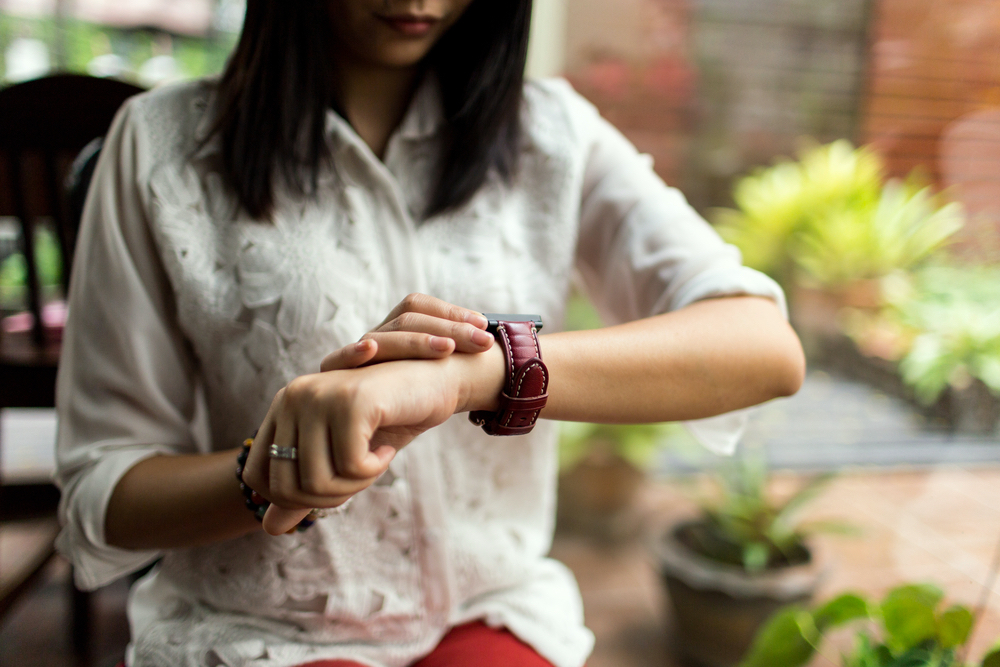Over the past six months, the novel coronavirus has changed our lives in countless ways. Perhaps the strangest universal experience is a shift in our perception of time – some days fly by, while others seem to crawl. On top of this, many people report not being able to remember which day of the week it is. A new study from the United Kingdom seeks to shed some light on how (and why) COVID-19 has changed our perception of time.
COVID-19 and Time: Survey Results
If your days seem to blend together, you’re not alone. More than 80% of survey respondents in a new UK study felt that their perception of time had shifted in the past few months of lockdown, as compared to their pre-quarantine lives.
Certain factors can contribute to a feeling of time passing slowly during the day. These include…
- High levels of stress
- Being an older person
- Having less to do (lower task load)
- Lower levels of socialization
On the other hand, some people feel that time is flying during quarantine. Younger, more socially satisfied participants reported an accelerated day, rather than one that crawls by.
The Same Day Over and Over
To really understand this phenomenon, it’s important to remember how quickly COVID-19 changed everything. “There was so little understanding of what was to come or the severity of the problem we had before us,” said Dr. Sanam Hafeez, PsyD, a neuropsychologist and Columbia University faculty member. Many of us believed that the pandemic would be resolved within a few weeks or months; few were prepared for how drastically everything would be altered for the foreseeable future. Almost overnight, all group gatherings and travel plans were cancelled.
In addition to the disappointment and anxiety created by COVID, the sameness of each day contributes to the way our brains play with time. We’ve all experienced a significant drop in new experiences due to the pandemic. Beyond the cancellation of vacations, travel plans, concerts, birthday parties, and holiday celebrations, we’re also missing out on the small novel occurrences that happen each day. For example, even something as simple as stopping at a new gas station can impact how you can perceive the passage of time. Without intentional changes to your routine, you may feel like the day is moving extremely slowly.
What This Means for People in Recovery
This sameness can be a blessing and a curse for people in recovery. On the one hand, if you establish a healthy routine, it is possible to feel especially steady and secure in your sobriety. On the other, many people in early recovery may find themselves uncertain, bored, and frustrated during this time. Regardless of your experience, one thing is certain: we should all strive to be intentional in our plans for the days ahead.
Find the Time: How to Reset Your Internal Clock
Fortunately, there are several steps you can take to reset your internal clock during COVID-19. Certain strategies can provide you with guidance, structure, and anxiety relief, while also mixing up the days enough to fix your perception of time. We’ve listed a few of our favorites for your review below.
Focus on Your Social Life
It may seem strange to dive into your social life during the pandemic, but making plans with friends is one of the best ways to provide yourself with memorable experiences that change your perception of time. Try to schedule Zoom calls, socially distanced outdoor events, or regular meetings – such as a book club, 12-Step groups, or Bible study – can help you to feel supported during difficult times.
Stay Healthy Through Routine
COVID-19 has disrupted all of our schedules. Be sure that you set regular times to wake up, eat each meal, exercise, and sleep each day. If you have spare time that used to be set aside for your commute, don’t sleep in – dedicate those minutes to learning something new. As paradoxical as it may seem, keeping a standard routine can actually boost your mental and physical health during the pandemic.
Practice Mindfulness
Unfortunately, it can be tempting to go through your day mindlessly. Address this by setting aside 15 minutes for mindfulness activity each day. You’ll increase your self-awareness, actively experience the present moment, and more accurately understand the passage of time.
Be Intentional with Your Time
Finally, remember that your days are under your control. You can break up the sameness by putting together novel events which you can look forward to. Try creating new traditions, such as a Wednesday morning coffee walk or a Friday night catch-up session with friends. These can serve as mental landmarks during your experience of COVID-19.
Your Partner in Recovery
At Lakeside-Milam, we’ve altered our programming and policies for COVID-19, ensuring safe access to helpful resources for our clients in the weeks to come. Whether you are new to recovery or have many years of sobriety, we’re here to help you to be healthy and happy during the pandemic. To learn more about our approach to treatment, contact us today.






